Neither of those sound like good news for Oracle Health. After the lofty proclamations of the last couple years. still…
Monday Morning Update 2/3/14
From The PACS Designer: “Re: Apple’s solar iPhone. As we head deeper into 2014 ,you will be hearing details on the next generation of iPhones. The rumored solar iPhone 6 that will be introduced in second half of 2014 will use the tough sapphire outer casing as a solar panel. Apple was granted a new solar touch screen patent that will allow the solar panel to operate without the need of a boost converter, thus providing optionality in the use of a power charge or a solar charge.” I was on the fence between the iPhone 5 and the Samsung Galaxy last time. Now that I’ve used an Android tablet at a fraction of the cost of the Apple equivalent, I think my next phone will be a Samsung. Apple seems to be moving into that mature product phase where everything gets more features and interesting tweaks without blazing any new ground. I’m not willing to pay a premium for that.
From Country Girl: “Re: Stage 2 quality measures. In 2014, quality measures did change for both EP and EH regardless of where you are in the attestation stages. More measures have to be reported and they must also be tied to the national quality goals. This information was published in the Stage 2 rule, not in December. However, many of the measures are aligned with PRQS for reporting guidelines. The final rules on PQRS was published in December and the reporting requirements came out December 31. As a result, it appears some vendors are still working on their reporting methodology to incorporate the changes. The problem for many organizations will be understanding where the data has to be recorded in the system to pull properly for reports. We are having trouble getting this information from the vendor as well. If you are trying to attest in the first quarter and don’t have the requirements, you could find the reports do not accurately capture your measures when you get the 2014 reports.”
From HIMSS EHR Association: “Re: Stage 2 quality measures. The required format for electronic submission changed for hospitals (EHs) in November, and in January for physicians (EPs). These changes, as well as Spring 2013 versions of the quality measures which are required for electronic submission, will require further development and implementation at the same time that EHR developers are pushing hard to implement the 2014 certified edition for their customers. More generally, there have been many changes to the methods, requirements, and process to submit CQMs electronically over the last year, and they continue changing. Some changes were promulgated in other CMS rules, such as the annual hospital and physician payment rules, and other changes were not part of rulemaking. And this does not take into account all of the significant changes that have occurred in certification over the last year, as well as additional updates to the CMS quality programs using electronic CQMs. In part because of the extent of these changes, CMS is permitting manual attestation on clinical quality measures for meaningful use in 2014, as has been done through 2013, not just for those in their first year. The EHR Association has been in dialog with CMS on issues with the requirements over the past several months. We understand that CMS will be issuing a CQM submission Tip Sheet within the next couple of months. We welcome any further discussion and explanation of these facts, in order to help our customers understand the current requirements for reporting CQMs to CMS.”

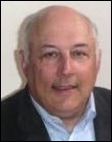
From Frank Poggio: “Re: CCHIT and certification. It’s a movie I’ve seen many times. A member organization wants to push the industry forward and generate some revenue, so they get in bed with regulators. Members get upset and view the association as part enemy, so the association wakes up and drops out of the program they helped start. CCHIT had the best tools and knew healthcare, so their interpretation of test rules and steps was sometimes different from the other ATLs. It was clear to me that they were overwhelmed. This had to be a money-losing effort for them given the Stage 2 (2014) complexity and the expanding complexity coming with the new 2015 Test Edition. Interestingly, all the remaining ATLs are non-healthcare companies and are learning the healthcare nuances as they go along. That should make for some interesting results.” Certification was created to reduce the risk of buying an EHR, which it arguably hasn’t done since the biggest risk isn’t misjudging functionality that you can plainly see or lack of interoperability that you don’t care about, but rather the possibility that your vendor will stop delivering high-quality enhancements and support. Which ironically some have because they are off chasing the government’s other “optional but not really” programs, Meaningful Use and ICD-10. Plenty of certified EHRs have unhappy customers, inadequate R&D budgets, and crappy support. You’ll see a bunch of them opt out of not only certification, but the EHR market in general as the HITECH teat dries up and those with no particular healthcare allegiance wander off seeking greener pastures.
From Albi Qeli, MD: “Re: EHRs. As a computer friendly practicing physician, I find the current vintage EHR software not only inadequate, but disgusting. The fundamental problem is that the software is not designed around physicians and patients’ requirements. Current systems try to replicate the paper forms that they are trying to replace, thus recreating a very faulty system and adding a few other defects to it. Add in the mandates and the penalties, and EHR has now become a dirty word. In every other field of human endeavor, computers solve specific problems and increase productivity. In a physician’s office, the EHR creates new problems (hackable, insecure, expensive, unwieldy, data silos) and increases staff requirements. All in the name of progress. People like me might be able to solve some of the practical and technical issues, certainly in order to have a workable efficient record keeping system for use in my own clinic. But such a system would not satisfy Uncle Sam.” As I’ve said many times, medicine is the only area in which the highest-paid resource is expected to perform data entry into a system whose benefit to them personally is coincidental at best. The EHR at its worst is a manual entry black box recorder for the government and insurance companies. Doctors who took HITECH money as a bribe to impulsively buy and use EHRs they now hate hasn’t helped push the market in a doctor-pleasing direction. Today’s systems reflect the financial reality for insurance-accepting practices — your customer isn’t the patient and you aren’t the boss. It would be interesting to review the systems used by cash-only practices, assuming they use any at all.
From One Tin Soldier: “Re: Best in KLAS. We won but weren’t included in your list.” The company in question didn’t actually win Best in KLAS, but it’s confusing enough to warrant an explanation. That title is reserved for products listed in the first two pages of the “Best in KLAS 2013” report, which lists solutions that “lead the software and services market segments with the broadest operational and clinical impact on healthcare organizations,” however KLAS defines that. Less rationally, the same report also includes Category Leaders 2013, defined above, but those don’t earn the title of Best in KLAS. Allscripts is the only vendor I’ve seen so far to incorrectly label a Best in Category win as Best in KLAS (had they included the word “in” after “named,” the headline above would be correct.) All of this is needlessly confusing – KLAS should use the term Best in KLAS for only the award, not as the title of a report that also includes other results. Either that or extend the Best in KLAS label to the category winners as well. The way they are using that title now seems a bit fuzzy, but then again some folks say that about the entire KLAS process.
Upcoming Webinars
February 5 (Wednesday) 1:00 p.m. ET. Healthcare Transformation: What’s Good About US Healthcare? Sponsored by Health Catalyst. Presenter: John Haughom, MD, senior advisor, Health Catalyst. Dr. Haughom will provide a deeper look at the forces that have defined and shaped the current state of U.S. healthcare. Paradoxically, some of these same forces are also driving the inevitable need for change.
February 12 (Wednesday) 1:00 p.m. ET. Healthcare CO-OPs and Their Potential to Reduce Costs. Sponsored by Health Catalyst. Presenters: David Napoli, director of performance improvement and strategic analytics, Colorado HealthOP and Richard Schultz, VP of clinical care integration, Kentucky Health Cooperative. Consumer Operated and Oriented Plans (CO-OPs) were established by the Affordable Care Act as nonprofit health insurance companies designed to compete in the individual and small group markets. Their intended impact was to provide more insurance options for consumers to pay for healthcare.
February 13 (Thursday), 12 noon ET. Advancement in Clinician Efficiency Through Aware Computing. Sponsored by Aventura. In an age of information overload, a computing system that is aware of the user’s needs becomes increasingly critical. Instant-on roaming for virtual and mobile applications powered by awareness provides practical ways to unleash value from current HIT investments, advancing efforts to demonstrate meaningful use of EHRs and improve clinical efficiencies. The presenters will review implementation of Aventura’s solution at Orange Coast Memorial Medical Center.

A HIStalkapalooza update: registration has closed and invitations will go out on Tuesday. Demand was high, so unfortunately more than half of those who signed up will be getting a “sorry, we’re full” email instead. We always give priority to providers, who registered in overwhelming numbers. Please don’t email Inga or me if you didn’t get an invitation because there’s no secret stash of them for us to hand out no matter how much we like you.
Eighty percent of poll respondents check their work email in the evening and on weekends, with 20 percent checking it at least hourly. New poll to your right: when were you last promoted?
My latest grammar peeves: (a) people who start sentences, especially written ones, with the word “so”; (b) the bizarre omission of the word “of” following “couple,” as in, “So I had a couple beers.”; (c) rampant overuse of pointlessly emphatic words such as “really,” “actually,” and “frankly,” which I excise by the dozens from some interview transcriptions.
Welcome to new HIStalk Platinum Sponsor InteHealth. The Malvern, PA-based employee-owned company connects patients, doctors, hospitals, and health plans cost effectively. InteHealth Exchange is a cloud-based, vendor-agnostic integration platform that is flexible and extensible; rapidly deployable; comes complete with a clinical data repository, data map library, and a messaging and alerts engine; and is MU2 ready. The company’s certified patient portal allows patients to view their records, make payments, schedule visits and tests, receive reminders, request refills, and share and download information. It is Stage 2 certified, integrates with 100 EHRs, has full CCD capability, and connects to the Direct exchange. The physician portal allows remote access and eliminates faxing and calling nursing and medical records for information. Hospitals can use InteHealth Exchange to solve problems related to information management, ACO care delivery, and discharge management. The company’s solutions are used by 1,900 sites and 20,000 physicians each year, processing 82 million transactions. Thanks to InteHealth for supporting HIStalk.
TeraMedica is supporting HIStalk as a Gold Sponsor. The company’s Evercore Clinical Enterprise Suite connects and manages a healthcare system’s digital image infrastructure all the way from the modality to the EHR and clinical desktop. It is vendor neutral, flexible, and scalable as an enterprise archive that manages both DICOM and non-DICOM (photos, videos, PDFs) clinical content. Its architecture features a scalable database, parallel application services running on enterprise-scale servers, n-tier storage, image storage and distribution rules, and tools to migrate legacy data, all architected to handle the explosion in imaging volume that’s coming, all with a lower total cost of ownership and true vendor independence. Thanks to TeraMedica for supporting HIStalk.
I found this YouTube video describing Duke’s TeraMedica VNA setup that’s integrated with Epic. It’s a very good overview of image management by Christopher Roth, MD, assistant professor of radiology and director of imaging informatics strategy at Duke Medicine.
Starting this week, you’ll see a single, short-term ad for various companies at the top of the HIStalk page, to the right of the logo. I’ve always turned down requests for “special” ads like this, but I agreed under these terms: (a) I’ll donate a big chunk of the proceeds to DonorsChoose to support students and teachers in need, reporting back here the projects that we (as HIStalk readers) funded as a result; and (b) it will be single ad that will run for only three days at a time so we don’t get tired of looking at it. Companies always want a burst of extra exposure for specific events, especially right before the HIMSS conference, and I can live with that since it will support classrooms.
Here’s a photo tweeted out by AMIA VP Jeff Williamson from iHealth 2014. This is like one of those fan convention photos of all the “Star Trek” captains together, only for a different variety of nerd: former National Coordinators Brailer, Kolodner, Blumenthal, and Mostashari. I would welcome a report on the conference if you attended. Orlando is in the low 80s every day, so I’m sorry to have missed seeing all of those informatics people in shorts and tee shirts.
A rumor suggests that Apple’s iOS 8 will include Healthbook, a fitness tracking app that will not only measure steps taken and calories burned, but also blood pressure, heart rate, and blood glucose (although the rumor doesn’t say how it would collect glucose levels.) The app will supposedly allow the user to enter medication schedules to allow the iPhone to issue reminders. All of that is related to the upcoming iWatch wearable computer. Apple has hired several health experts in the past year and has met with the FDA on undisclosed topics.
Athenahealth chooses Austin, TX for its R&D office, pledging to create 600 jobs that will pay an average salary of $132,000. The company will receive $680,000 from the city and $5 million from the state in incentive payments over 10 years to occupy the Seaholm Power project that’s under construction on West Cesar Chavez Boulevard.
Vince Ciotti is one of the most hilariously cynical people in healthcare IT, so even he recognizes the irony in this HIS-tory episode in which he lustily guzzles the Epic Kool-Aid right at the factory. Epic fans will not be surprised that Judy invited Vince to present some industry history to several thousand Epic employees too young to remember it. This is a great episode that also includes a fun fact: one of Judy’s early mentors was Neil Pappalardo of Meditech, so when she started Human Services Computing in 1979, she targeted only large hospitals to avoid stepping on Meditech’s turf.
Contacts
Mr. H, Inga, Dr. Jayne, Dr. Gregg, Lt. Dan, Dr. Travis, Lorre.
More news: HIStalk Practice, HIStalk Connect.


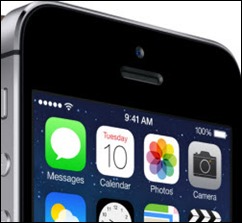



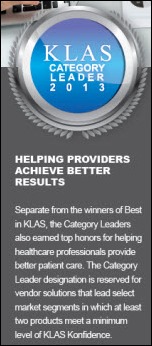
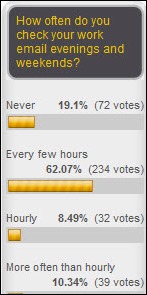
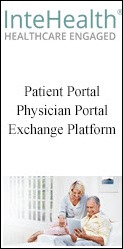
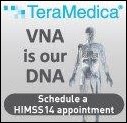





So athenahealth gets nearly $6M to create jobs in an area that is booming & doesn’t have any problem filling commercial office space and has no commitments to follow through regarding any of the claims they make regarding job creation to get the funding?
Ridiculous but par for the course in the US today as large companies shakedown local and state gov’ts desperate to show they are ‘creating jobs’ even if the direct/indirect subsidies for the jobs cost them more than the actual tax revenues they bring in.
One of the better news days as reported on this blog.
Is anyone taking care of patients anymore, actually? Considering all of the red tape nonsense from CMS and ONC, all supervised by Sebelius, we wonder if these rules and regulations require a PhD course in addition to the MD and RN for taking care of patients.
#CCHIT @histalk “Certification was created to reduce the risk of buying an EHR…”
This is not exactly true. HIMSS birthed CCHIT to provide the notion to would be buyers of EHRs that they were tested in some form. Most buyers thought this was like an FDA stamp, ie that certification meant EHRs were safe, effective, and usable and provided legitimacy to the EHR vendors. After Calvin Jablonsky disclosed the relationship between HIMSS and CCHIT on the WSJ Health Blog (now defunct), and Obama needed more EHR integrity to back the cash giveaway, it was decided to separate certification processes from HIMSS’ CCHIT organization and create new certifiers.
To the best I can tell, the program has failed to make these devices more usable, and still, no one is systematically collecting and evaluating the millions of daily dysfuctions that doctors and nurses need to work around.
Thank you for an informative issue of HIStalk.
Words have meaning. You state you peeves here: ****rampant overuse of pointlessly emphatic words such as “really,” “actually,” and “frankly,” which I excise by the dozens from some interview transcriptions.****
They are not emphatic. The words “really” and “frankly” have limbic implications, indicating uncertainty of the truth in tha reaches of the brain of the writer or speaker. “Actually” is commonly used by the speaker or writer to jest when the truth is obvious.
[From Mr H] Those words are used to provide emphasis by my interview subjects, so they are emphatic in the examples I hear. Such as, “Our company is really trying to create new synergies,” or, “I was actually head of development at XXX,” or, “I am frankly happy with how the legislation turned out.” The subject feels the need to chummily convey their honesty, not because they don’t believe their statements. Which reminds me of something I hear a lot in interviews: “We formed a committee to figure out how can we improve our sales” instead of “We formed a committee to figure out how we can improve our sales,” turning the statement into a partial question.
Am I losing my mind or are those last two sentences identical?
Responding to Albi Qeli, MD
“disgusting?” Really? As an ex Epic person who now works for a health care organization, I find it sad that so many physicians feel the need to project blame regarding EHRs. Bottom line, there are many, many successful physicians, nurses, and organizations that are benefitting greatly from EHRs, Epic and other, so to blame them for your lack of comfort with change or willingness to invest time to learn a system is “disgusting”. So many emotions are so misplaced. EHRs improve outcomes, and for those who are committed, productivity too. Read the studies, talk to your more constructive peers. To all administrators out there, I suggest that you change the game; any physician that is not on board with the benefits of an EHR no longer has a place at your organization. There is no place to run, get on board or change professions. I don’t like facebook or twitter, I think they are ridiculous, but guess what, I need to accept and embrace them and find the positive, because they are not going away and others are using them to get ahead of me. Focus on the positive, that is what intelligent people do, anyone can point out the negatives, the challenges, or the risks. Negativity is exhausting, optimism gets you out of bed in the morning. If you honestly believe paper beat the EHR, you should not be taking care of patients. Please retire.
Forget the Samsung if you want android – get the Google Nexus 5 and do it right. No contact, no bloatware, it’s fast and lean and beautiful! I switched over from iPhone in October and LOVE it.
Not sure why you think an iPhone is more expensive. Come wireless contract renewal time, the best samsung has to offer is typically the same price with my carrier as the new iPhone.
I also sell my previous iPhone after upgrade on craigslist where its resale value is always higher than a comparable 2yr old smartphone from another mfg. I actually end up with new phone and make some money to boot!
For Inga: You may already have a pair, but it’s a shoe and it’s on sale: http://www.officedepot.com/a/products/198249/Scotch-Fashion-Tape-Dispenser-With-Magic/ $5 in the “Sunday Ads”
@ex-epic $$$$$$$$ If you honestly believe paper beat the EHR, you should not be taking care of patients. Please retire.$$$$$$$$
Simple shallow statement. You obviously have never used an EHR nor do you understand the complexity of the human body and the workflows of medical care. Getting lab data to the point of care and imaging results and images is the one IT function that improves care, workflow, and outcomes. All else, including CPOE, CDS, and pages of visual noise from cut and paste EHR function represents an incredible waste of professional time, is error producing, causes distraction, causes communication impediment, delays care, but makes huge bucks for the vendors and the hospitals.
For Mr. H and all those other grammarphiles out there, consider connecting with “I judge you when you use poor grammar.” on Facebook. It is great!
Check out the book “Woe is I: The Grammarphobe’s Guide to Better English in Plain English”
@AnotherDave – I don’t know if Inga has one but I do! It’s fabulous!
The use of “So” to start spoken sentences is especially grating. I find it used a lot by “under 40-somethings” when they are answering a question. Such as, Q: “How does a watch work?” Answer: “So, it has . . . ”
The other one that is out of control is the use of “myself” to mean “me.” Hint here, 98 percent of the time you are speaking and referring to yourself, the correct word is ‘me’. You should ban “myself” and keep it in your pocket for special occasions – like when you need a reflexive pronoun in your sentence.
I hear “The class will be taught by Joe and myself.” and other similarly grating statements. And again, I hear it much more from the under-40 crowd. And if that sentence example sounds proper to you, please Google the term “myself usage” to find out how to use it.
Otherwise, I may have to treat myself to a series of adult beverages, which I will consume by myself, if I hear it used in error again.
Kudos on the “special” ad idea- a great use of HisTalk real estate!
Response to Lazio re: Athenahealth and Austin. Your view is appreciated and to some degree spot on. However, $5.7M in incentives over 10 years is chump change compared to the positive impact on the local economy in terms of consumer spending resulting from these jobs. Think of 600 people and their families renting or purchasing homes, associated property, sales, and local income taxes, to say nothing of retail spending. The big reason why companies also move to Texas is the state does not impose an income tax, so employees get a huge break. I wish the left wing leadership here in California would follow suit, but Jerry Brown and his cronies are too busy seeking to find NEW taxes instead of eliminating and/or reducing taxes. And then they wonder why California’s economy continues to sputter and companies close shop and move to TX, AZ, NV, etc.
Re: LanguageMaven:
Thank you for succinctly addressing the great grammar scourge of our generation, the misuse of myself. You took the words out of my mouth. It comes about because of people’s need to formalize or “dress up” their language, and referring to oneself as “me” just seems plain. Regardless, it drives me up the wall every single time I hear it, which is about 150 times per day. As Austin Powers (or Dr. Evil, I can’t remember which) said: “Allow myself to introduce…myself.” Everybody needs to repeat that phrase to himself or herself daily, and then ask “Do I really mean to say me?” Chances are good that you do.
Vince’s Epic Report-
After a great presentation he was asked by the Epic staff….what have we learned, where are we going?
HISTalk published my thoughts on this 1/2/13 entitled “Seven Deadly Sins of EHR Success”
http://histalk2.com/2013/01/02/readers-write-1213/
Could this be in Epics future??
And I think Vince should do this presentation at HISTalkapalooza!
Ex-epic: your suggestion that I retire is much appreciated. Come to think of it, I could easily get a job in software, but who will do my job… you perhaps? I wish we would switch for a half a day.
A long response would dignify your self-interested baloney. But i do want you to know that I do use computers in my daily routines, how could I not? And I find them useful for many things. I have 3 desktop computers at home, one of them a PACS system – in my home. I own a 3d printer. I do online banking. I book flights online. I have spent countless hours on wikimapia. You get the idea. And here I say it again: current vintage EHR makes the average doctor’s day worse, not better, makes patient care worse, not better, creates problems, does not solve them.